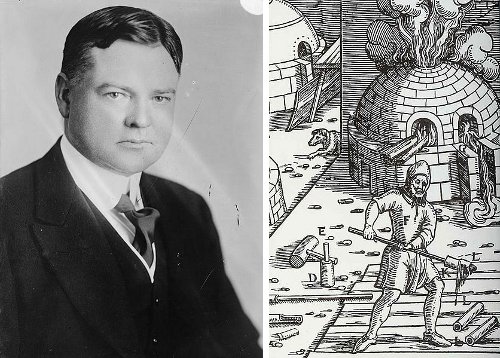
The Treaty of Berlin was drafted in secrecy, so its framers were astonished to find it published in the London Times. Journalist Henri de Blowitz at first refused to reveal his source, but at last relented near the end of his life. Well before the congress started he had attached a confederate to the clerical staff, but the man felt he was being watched, so the two could not dare to meet or talk. Finally de Blowitz noticed that they wore hats of the same type and color, and he hit on a plan of “childish simplicity.”
De Blowitz was staying at the Kaiserhof. Each day his confederate went there for lunch and dinner. The two never acknowledged one another, but they hung their hats on neighboring pegs. At the end of the meal the confederate departed with de Blowitz’s hat, and de Blowitz innocently took the confederate’s. The communications were hidden in the hat’s lining.
“Only twice were we forced to put off the communication till the following day,” de Blowitz wrote in his 1904 memoir. “Once, however, we had a scare.”
“One of my English colleagues, on leaving the dining-room, made a mistake and took my friend’s hat. Without looking at each other we felt, as he wrote me next day, that we turned pale. If the colleague in question had kept the hat, he might have discovered the third article of the treaty, which had been adopted at the previous day’s sitting, and also a hint of the difficulties that had arisen between Russia and England on the question of the boundaries of Bulgaria, and very disagreeable consequences for my friend might have been the result. Fortunately, on reaching the door, the Englishman put on the hat, which dropped over on his nose. He laughingly took it off and replaced it on its peg. I had risen to take the hat from him, but sat down again. I breathed freely, and my friend must have done the same.”





